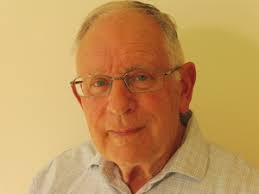 If you look back through history there are periods of relative calm when it would have been possible to say the world has changed little during a lifetime. There was a time when people thought nothing of taking two centuries to erect a new building – for example the Middle Ages churches and cathedrals. There have also been periods of what has often been abrupt and sometimes bloody change when the world has changed dramatically over a short period of time. Looking back to the 20th century both of the world wars fall into that category. In some cases, our forebears would say it was enough to have survived let alone pondered the significance of the change.
If you look back through history there are periods of relative calm when it would have been possible to say the world has changed little during a lifetime. There was a time when people thought nothing of taking two centuries to erect a new building – for example the Middle Ages churches and cathedrals. There have also been periods of what has often been abrupt and sometimes bloody change when the world has changed dramatically over a short period of time. Looking back to the 20th century both of the world wars fall into that category. In some cases, our forebears would say it was enough to have survived let alone pondered the significance of the change.
However, it was the industrial revolution that changed the pace of life forever. Since then change has been a feature of life for every generation and the pace of change has accelerated as time has gone on. It seems impossible that this could be sustained but so far indeed it has, and I suspect this will continue. I think the fear I would have for future generations is that the pace and nature of change become too much for the human brain to comprehend and manage. Maybe we are near that point already.
This article is about the changes that have occurred during my lifetime – starting in the early 1950s and going through to the 2010s. The changes I have seen have been transformational. The world of the 2010s is fundamentally different from that of the 1950s although some of what we had in 1950 has survived remarkably well.
My lifetime has seen some remarkable changes occur most of which can be discussed in blocks of time which span about a decade.
I was born a little too soon to genuinely be a baby boomer but that is where I fit if you want to fit people into generational groups. The baby boomers are by any count the “lucky generation” although they probably will not be as well off financially as their children. They are lucky first because they were the first of several generations not have to fight in a major war, and secondly because they grew up at a time when growth and progress and optimism coloured everything that was going on. Reality hit a bit later in the century but that initial start was magic.
1950’s
The earliest period of life I can remember – although very probably they are borrowed memories from parents – was the 1950s. I was a war baby. I started out my life on the North Shore in Auckland at a time when it was a sleepy outer suburb and ended the decade living in Upper Hutt, near Wellington. Although our time in Auckland was limited I recall with great fondness endless sunny days spent on the beach and in the water. New Zealand was still recovering from the second world war at the start of the period but this soon blossomed into a period of unprecedented growth. The growth was inevitable, to accommodate the thousands of servicemen and women flooding back from the war. This was the decade when the State House was born and flourished – nothing else would have housed the surge in population. It is ironic that although they were all basic in design the early State Houses have survived several decades without mishap – a far cry from the leaky home problems of the 90s.
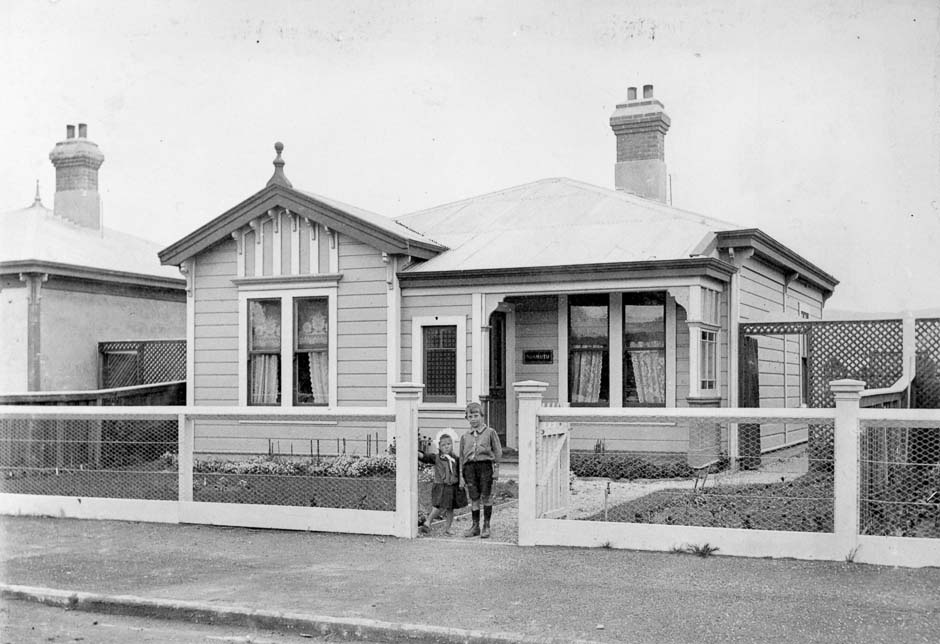
Growth demands new infrastructure and a characteristic of the 3 decades starting in the 1950s was the growth in all types of infrastructure – not just houses but roads, water supply and sewage systems and particularly power stations. Several of our great rivers including the Waikato in the North and the Clutha and Waitaki in the south became the site for what were really magnificent engineering achievements. Geothermal was developed at Wairakei. It is interesting that today’s approach to environmental issues would probably have stopped most of these power projects from proceeding.
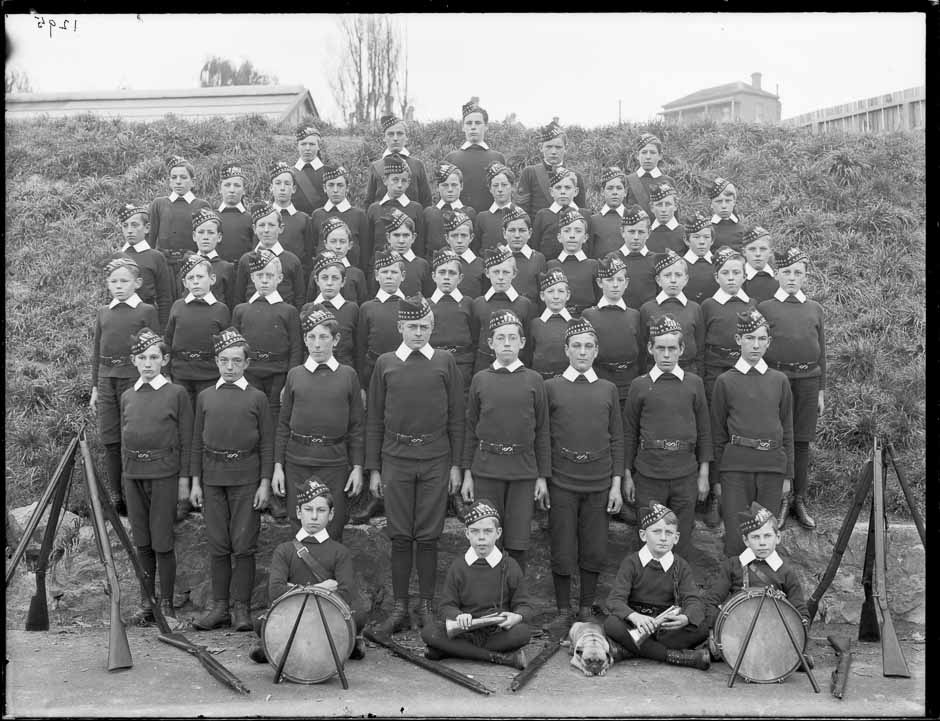 The 1950s were my school years spent partly in established schools and partly in new schools built to house the education of the new generation. The Upper Hutt valley was basically old river bed and full of rocks – at Secondary School a major task during the first few years was to remover the rock from the surface layer of soil so playing fields could be established. The concept of secondary school “cadets” was very prominent at the time – memories of the war were still very raw – and a major feature of our cadet days was the rock picking up detail.
The 1950s were my school years spent partly in established schools and partly in new schools built to house the education of the new generation. The Upper Hutt valley was basically old river bed and full of rocks – at Secondary School a major task during the first few years was to remover the rock from the surface layer of soil so playing fields could be established. The concept of secondary school “cadets” was very prominent at the time – memories of the war were still very raw – and a major feature of our cadet days was the rock picking up detail.
The 1950s into the early 60s was a magic time to be a young New Zealander because of the optimism in the community and the rapid changes brought about by technology. I remember with awe getting to grips with our first integrated record player/radio which was housed in a wooden cabinet taking up a whole corner of the room. It seemed only the next day that the first black and white TVs arrived and they soon morphed into the provision of colour. Initially, programmes only occupied a small part of the day and were all signed off at midnight – a far cry from the round the clock approach embedded in today’s’ world.
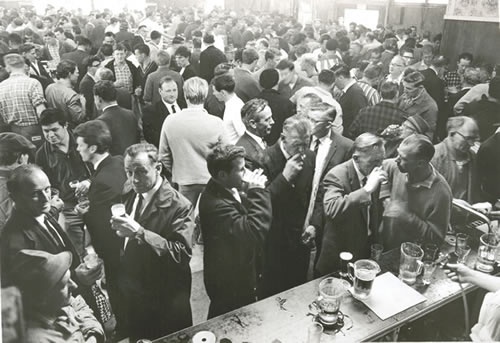 This was the heydey of that great institution – the 6 o’clock swill. For men returning home from work, the task was to consume as much beer as possible, in the limited time available. I shudder to think of the havoc that would have wreaked in many families. In those days the Trade Unions were a force to be reckoned with. I was too young to even comprehend the waterfront strike and the mayhem that ensued from that, but it was in many ways a violent time. That violence extended to parts of our society that I had no comprehension of at the time, particularly the treatment of refugees, orphans and of those with mental health problems. Maori were still treated like second-class citizens. Some truly dreadful things were done and the repercussions are still being dealt with today. But on the surface, to a young white middle-class New Zealander, it seemed like paradise.
This was the heydey of that great institution – the 6 o’clock swill. For men returning home from work, the task was to consume as much beer as possible, in the limited time available. I shudder to think of the havoc that would have wreaked in many families. In those days the Trade Unions were a force to be reckoned with. I was too young to even comprehend the waterfront strike and the mayhem that ensued from that, but it was in many ways a violent time. That violence extended to parts of our society that I had no comprehension of at the time, particularly the treatment of refugees, orphans and of those with mental health problems. Maori were still treated like second-class citizens. Some truly dreadful things were done and the repercussions are still being dealt with today. But on the surface, to a young white middle-class New Zealander, it seemed like paradise.
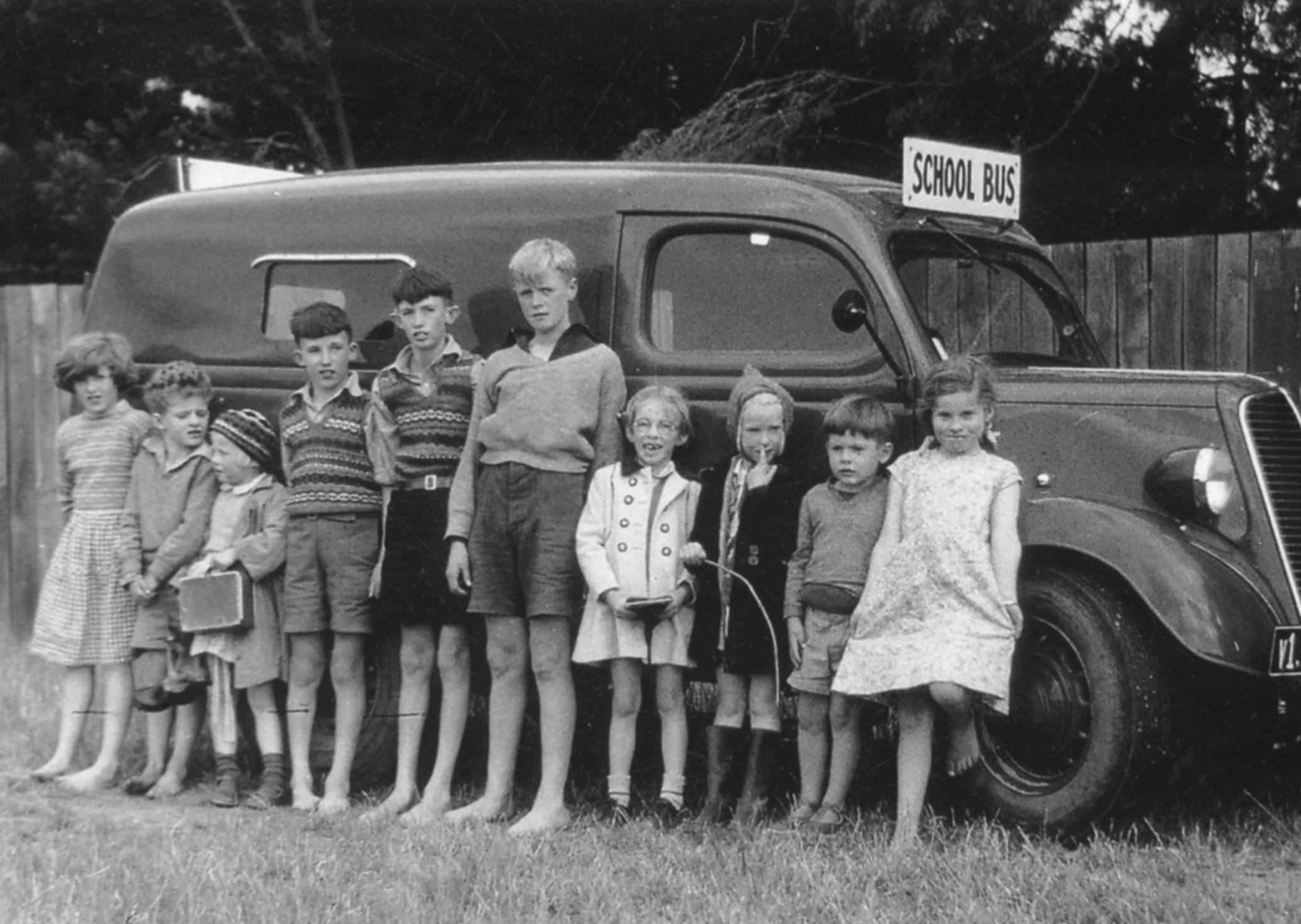 As I have said it was a great time to be a youngster. There was little parental control of what we did after school and we roamed far and wide exploring the neighbourhood and the surrounding bush and hills. We had accidents – I remember breaking my arm twice – but people shrugged their shoulders and said it was all part of the process of growing up. In most respects that was a very healthy attitude to take and I think served us well as we made our way into working life. Politically New Zealand was dominated by the National Party and “Kiwi Keith” (Keith Holyoake) as our Prime Minister.
As I have said it was a great time to be a youngster. There was little parental control of what we did after school and we roamed far and wide exploring the neighbourhood and the surrounding bush and hills. We had accidents – I remember breaking my arm twice – but people shrugged their shoulders and said it was all part of the process of growing up. In most respects that was a very healthy attitude to take and I think served us well as we made our way into working life. Politically New Zealand was dominated by the National Party and “Kiwi Keith” (Keith Holyoake) as our Prime Minister.
1960’s
This halcyon life continued into the early 1960s. Economically, it was fuelled and sustained by the export of primary produce to “Mother Britain” and we were very conscious of Britain being our spiritual home. At this stage air travel was very rudimentary – even a trip to Sydney in the flying boat was a major expedition. But that changed rapidly in the 1960s and travel to far off places suddenly became possible and affordable. As a result, young New Zealanders in their thousands flew off on their big OE with the first port of call almost always being London. And I think London still holds a special place in the hearts of many New Zealanders. In the 1950s music also changed forever with the emergence of rock and roll and of course the “king”, Elvis Presley. The music was very basic but it was fresh and a clear break from the past
 It was all too good to last and it didn’t. Britain bowed to what seemed the inevitable and joined the European Common Market. Suddenly we had no automatic market for our wool, butter and meat but wanted to continue life as though we did. Rob Muldoon became Prime Minister during this period and tried to ignore the changed financial circumstances by allowing inflation to run rampant and borrowing to fill the ever-widening deficit. For a good while, it worked! Rob Muldoon was a formidable politician and made life a misery for his opponents. His most famous one-liner was his description of Bill Rowling as “a shiver looking for a spine to run up”.
It was all too good to last and it didn’t. Britain bowed to what seemed the inevitable and joined the European Common Market. Suddenly we had no automatic market for our wool, butter and meat but wanted to continue life as though we did. Rob Muldoon became Prime Minister during this period and tried to ignore the changed financial circumstances by allowing inflation to run rampant and borrowing to fill the ever-widening deficit. For a good while, it worked! Rob Muldoon was a formidable politician and made life a misery for his opponents. His most famous one-liner was his description of Bill Rowling as “a shiver looking for a spine to run up”.
The 1960s were my university years, initially at Victoria and Canterbury and then at the end of that decade at Cambridge University in Britain. I was married to my wife Penny by then and much of our time was spent travelling in Europe. The 1960s also saw the emergence of the space race – the USSR was still a major power at this point, in complete opposition to the USA. And towards the end of the 1960s, this culminated in the first manned landing on the moon. On a more sombre note, I vividly remember the Wahine disaster – we were travelling through Ireland at the time but heard it all on the radio.
Economically, New Zealand was now living well beyond its means and this was set to eventually come to a traumatic end.
1970’s
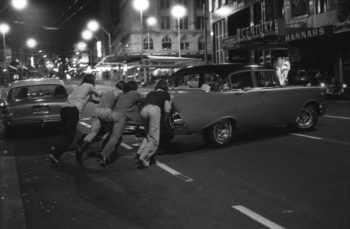 So we entered the 1970s – which turned out to be the energy decade. I was back in New Zealand and much involved in the research and policy development done during this period. There were two oil shocks – one in 1973 and the other in about 1978. In both cases, the price of oil doubled overnight because of supply restrictions imposed from the Middle East. This was the era of car-less days and the introduction of alternative fuels such as LPG and CNG. This was also the time of “think big” – building huge projects that we could not really afford to enable us to survive the new economic realities. Amongst other things, at the end of the 1970s, this led to the decision to build a synthetic petrol plant at Motunui near New Plymouth and to modify the oil refinery to fit. The synthetic petrol plant was built on the assumption – which all the experts agreed was cast iron – that petrol prices would continue to rise. Unfortunately, oil prices flattened out and increases were only in line with inflation. This drastically altered the economics of the synthetic petrol plant so that it eventually became a methanol producer and the synthetic petrol components were mothballed.
So we entered the 1970s – which turned out to be the energy decade. I was back in New Zealand and much involved in the research and policy development done during this period. There were two oil shocks – one in 1973 and the other in about 1978. In both cases, the price of oil doubled overnight because of supply restrictions imposed from the Middle East. This was the era of car-less days and the introduction of alternative fuels such as LPG and CNG. This was also the time of “think big” – building huge projects that we could not really afford to enable us to survive the new economic realities. Amongst other things, at the end of the 1970s, this led to the decision to build a synthetic petrol plant at Motunui near New Plymouth and to modify the oil refinery to fit. The synthetic petrol plant was built on the assumption – which all the experts agreed was cast iron – that petrol prices would continue to rise. Unfortunately, oil prices flattened out and increases were only in line with inflation. This drastically altered the economics of the synthetic petrol plant so that it eventually became a methanol producer and the synthetic petrol components were mothballed.
1980’s
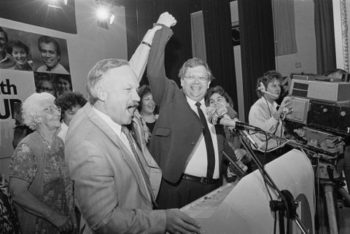 So we entered the decade when reality finally struck home – the 1980s. By then Muldoon was a lonely and isolated figure who had borrowed the country to the point of bankruptcy. An election was held and the new breed – David Lange, Roger Douglas and co took office. They promptly swept through the established way of things like a hurricane. Everything in sight was deregulated or turned into a state-owned enterprise. The latter included the electricity sector which was a big deal.
So we entered the decade when reality finally struck home – the 1980s. By then Muldoon was a lonely and isolated figure who had borrowed the country to the point of bankruptcy. An election was held and the new breed – David Lange, Roger Douglas and co took office. They promptly swept through the established way of things like a hurricane. Everything in sight was deregulated or turned into a state-owned enterprise. The latter included the electricity sector which was a big deal.
Toward the end of the decade, the wave of reform hit the public sector as well and departments were redesigned, and in some cases demolished. As is often the case with young, enthusiastic countries the pendulum had swung too far in the other direction, and in 1987 the share market collapsed. It hit everyone pretty hard, particularly Mum and Dad investors who were in the share market for the first time. Then David Lange – who was basically a socialist and not that keen on some of the reforms – called for his famous “break for a cup of tea”. Lange was promptly ditched by his party, and the party were then promptly ditched by the electorate and National came back into power.
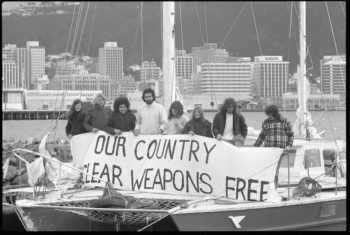 One of Labour’s enduring legacies from this period was the nuclear-free policy which got us into great trouble with the US. Lange embraced the policy enthusiastically (although by all accounts he was a reluctant starter because he knew it would sour relations with the US) and everyone remembers his famous line when he participated in a debate on nuclear-free at the Oxford Union – “ when you lean forward I can smell the uranium on your breath”.
One of Labour’s enduring legacies from this period was the nuclear-free policy which got us into great trouble with the US. Lange embraced the policy enthusiastically (although by all accounts he was a reluctant starter because he knew it would sour relations with the US) and everyone remembers his famous line when he participated in a debate on nuclear-free at the Oxford Union – “ when you lean forward I can smell the uranium on your breath”.
1990’s
The 90s started where the 80s left off and most of us can remember Ruth Richardson and her “Mother of all Budgets” which was even more right wing than budgets of the previous government. That was too much for the then Prime Minister, Jim Bolger, and a more middle line was taken from then on. The technological feature of the 90s was the growing influence of the computer and as data processors got ever smaller and more powerful, the spread of data processing technology to other areas – this included the first mobile phones which were very large and clunky. What happened was indeed a revolution, but it happened so smoothly that it was accepted without question. During this period New Zealand really came out of its shell and began to negotiate free trade agreements with any country that was interested. This wide-open approach was a dramatic reversal of the insular policies of the 50s which were focused very largely on Mother Britain.
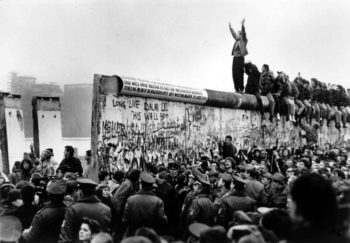 The 1990s also saw the emergence of global warming (aka climate change) as a major albeit controversial issue, and the emergence of the Kyoto Protocol as the first attempt at an international response. It never had the impact hoped for and I guess has now been replaced by the Paris Accord, which I also doubt will have the impact hoped for.
The 1990s also saw the emergence of global warming (aka climate change) as a major albeit controversial issue, and the emergence of the Kyoto Protocol as the first attempt at an international response. It never had the impact hoped for and I guess has now been replaced by the Paris Accord, which I also doubt will have the impact hoped for.
The political event of the 1990s was the breaking down of the Berlin wall in 1989 and then the disintegration of the USSR under Gorbachev in 1991. The cold war died at that moment and I think opened the door wide to true globalisation.
2010’s
The 2010s really saw more of the same in a technical sense, i.e. the continuing spread of digital technology into all facets of our lives. Data processors were now so small and powerful than an ordinary mobile phone, now as small as you wanted, had more computing power than machines that had filled a whole room in the 60s and 70s.
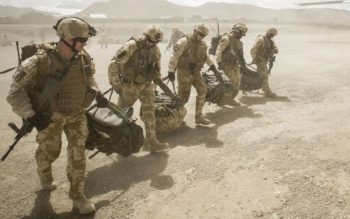 We are now well and truly into the digital technology age bringing with it both benefits and some very significant risks. The growth of social media has almost destroyed the traditional view of personal privacy and some of our young people particularly are paying a terrible price for that. This decade also saw the growth of a less desirable phenomenon – that of the Middle East inspired terrorism. This followed on the heels of two forays by the US – one by the older Bush and the other by the younger Bush – into war with Iraq. Neither war really solved much except to give a boost to terrorism as a weapon which was hard to combat. A key event of the decade was the deadly attack on the twin towers in New York in November 2001. There were some countervailing victories such as the capture and death of Bin Laden of Al Qaeda, but terrorism has proved to be a multi-headed monster.
We are now well and truly into the digital technology age bringing with it both benefits and some very significant risks. The growth of social media has almost destroyed the traditional view of personal privacy and some of our young people particularly are paying a terrible price for that. This decade also saw the growth of a less desirable phenomenon – that of the Middle East inspired terrorism. This followed on the heels of two forays by the US – one by the older Bush and the other by the younger Bush – into war with Iraq. Neither war really solved much except to give a boost to terrorism as a weapon which was hard to combat. A key event of the decade was the deadly attack on the twin towers in New York in November 2001. There were some countervailing victories such as the capture and death of Bin Laden of Al Qaeda, but terrorism has proved to be a multi-headed monster.
Present Day
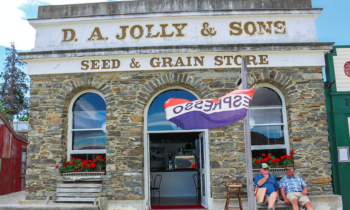 So that brings us to the present day – 2017. We are almost at the completion of the decade of the 2010s but have a feeling that there are more surprises to more to come before it finishes. In a sense, New Zealand has continued down the path first pointed in the 1980s of a more open, trading economy with this trend bolstered by the fall of the USSR (the Soviet Union) and the end of the cold war. But particularly since the 2001 attack on the twin towers in New York, terrorism has emerged as a new and ever-increasing concern, and issues such as climate change, the war on poverty in developing countries and so on occupying the international environmental and political agenda. The digital revolution continues to increasingly influence work and our lives. In New Zealand, the 2000s have been the domain of two very successful political leaders – first Helen Clark for Labour and then John Key for National. There has more recently been the surprise of Donald Trump’s election as US President and the ongoing escalation of tension with North Korea – none of which bodes well for the future. In regard to domestic politics, the recent change in Government looks to have heralded in a time where we will see a different approach to finding our way in the world.
So that brings us to the present day – 2017. We are almost at the completion of the decade of the 2010s but have a feeling that there are more surprises to more to come before it finishes. In a sense, New Zealand has continued down the path first pointed in the 1980s of a more open, trading economy with this trend bolstered by the fall of the USSR (the Soviet Union) and the end of the cold war. But particularly since the 2001 attack on the twin towers in New York, terrorism has emerged as a new and ever-increasing concern, and issues such as climate change, the war on poverty in developing countries and so on occupying the international environmental and political agenda. The digital revolution continues to increasingly influence work and our lives. In New Zealand, the 2000s have been the domain of two very successful political leaders – first Helen Clark for Labour and then John Key for National. There has more recently been the surprise of Donald Trump’s election as US President and the ongoing escalation of tension with North Korea – none of which bodes well for the future. In regard to domestic politics, the recent change in Government looks to have heralded in a time where we will see a different approach to finding our way in the world.
I started this article off by suggesting that us baby boomers were the lucky generation. With the benefits of hindsight maybe that’s a little too strong. There have been definite ups and down over the last 50 years and I think my generation is increasingly struggling to keep up with some of the technical changes occurring. Change there has of course been – over a period of 50 years, that’s inevitable. But the change has been driven by technological innovation to an extent that is quite remarkable. The key changes have been in digital technology but major technical changes have also occurred in almost every other area.
So that is one person’s view on what has happened in their lifetime. I have concentrated on things I have been involved in or particularly interested in, so I am sure there are major gaps to fill. I am sure that other readers could provide their own perspective so that we fill those gaps to give a fully rounded picture.
By Bas Walker
This is another of Bas Walker’s posts on GrownUps. Please look out for his articles, containing his Beachside Ponderings.







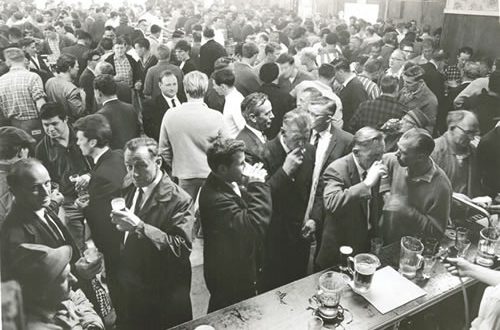
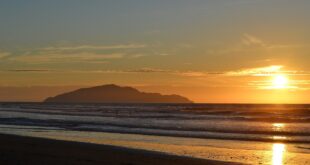
felicity - 8 years ago
Great reflections, thanks for taking the time to put it down in writing